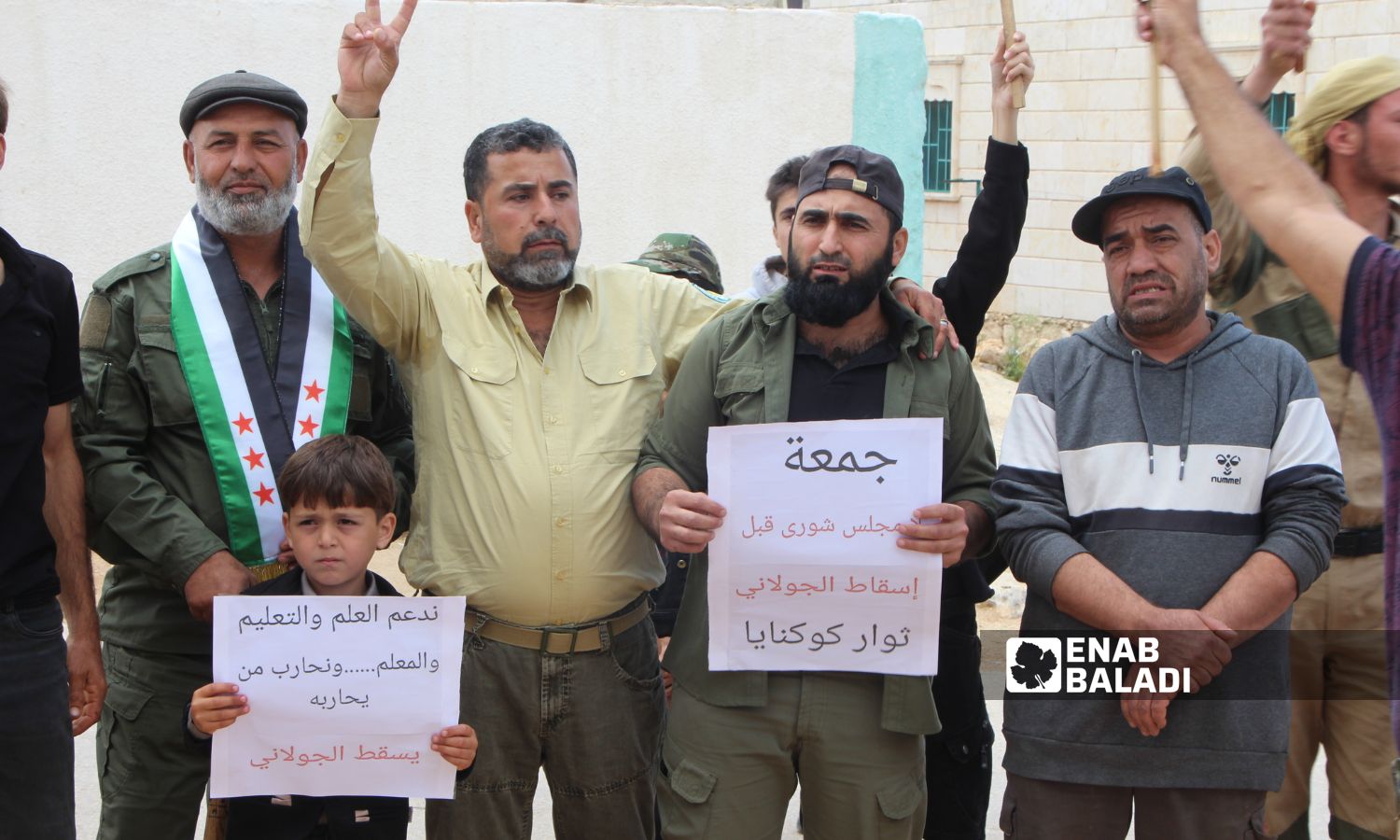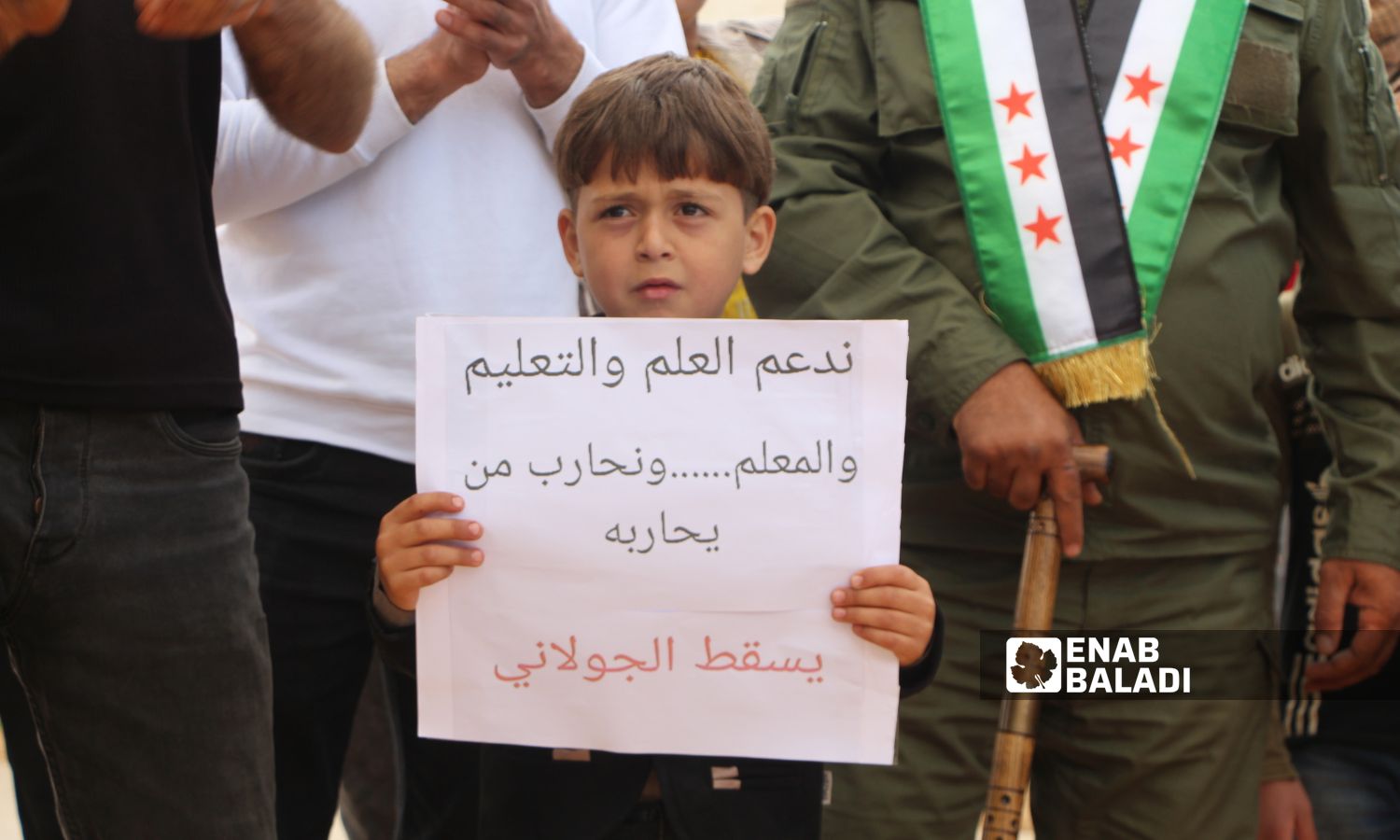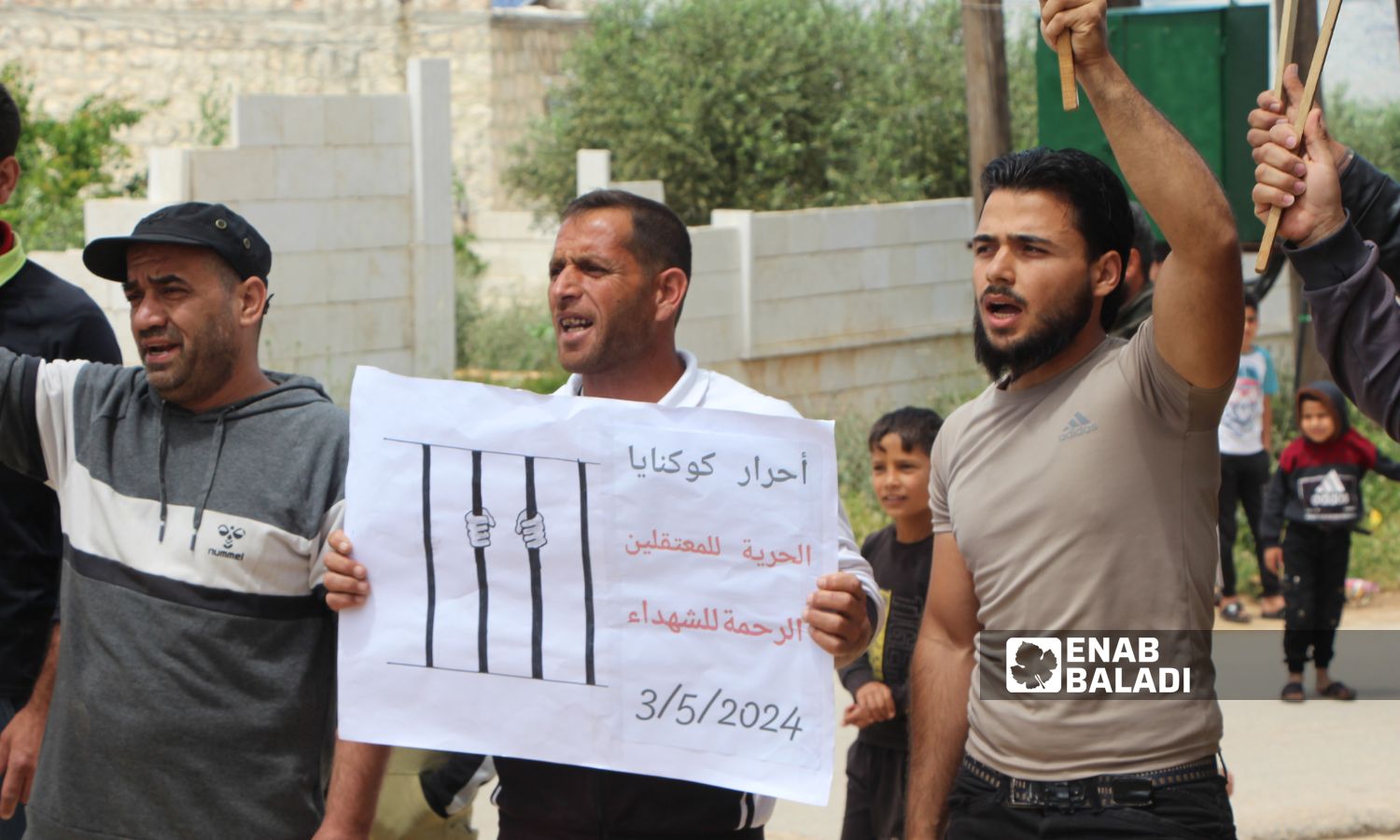



Various areas in Idlib and its countryside have witnessed demonstrations rejecting the policies of Hayat Tahrir al-Sham (HTS) and demanding the overthrow of the group’s leader, Abu Mohammad al-Jolani. The popular movement has entered its third month.
Enab Baladi‘s correspondents in Idlib reported that the demonstrations kicked off after the Friday prayers today, May 3, in central Idlib and towns including Binnish, Salqin, al-Atarib, Jisr al-Shughour, Koknaya, Maarat Misrin, Sarmada, Ebin Semaan, and Bfatamoun.
Demonstrators are demanding the downfall of al-Jolani, rejecting the monopolization of decision-making, the release of all detainees, and the separation of military control from civilian affairs.
Demonstrators interviewed by Enab Baladi consider the reforms enacted by HTS and its political umbrella, the Syrian Salvation Government (SSG), as inadequate and as merely sedative measures.

Protesters in the village of Koknaya in northern rural Idlib are demanding the overthrow of the leader of Hayat Tahrir al-Sham (HTS) Abu Mohammad al-Jolani – May 3, 2024 (Enab Baladi/Iyad Abdul Jawad)
The popular movement has been ongoing for 67 days, led by civilian activists, and supported by military and religious figures, particularly following the exposure of torture incidents in HTS prisons since February.
Since February 26, HTS has faced peaceful movements and demonstrations from civilians, activists, military, and religious figures demanding the ouster of al-Jolani and rejecting the monopolization of decision-making and the autocratic governance.
The demonstrations were met with promises of reform and intensive meetings by al-Jolani, the Salvation Government, and the Shura Council, including a general amnesty for detainees with certain exceptions and forming committees to hear grievances from residents, abolition of some fees on buildings, and exemptions based on conditions.
Afterward, a series of promises were followed by the initiation of their implementation, including the restructuring of the General Security Service within the Ministry of Interior in the Salvation Government, establishing a supreme advisory council to review public policies and strategic decisions in the region.
A call was also sent for elections for the General Shura Council of the region, the formation of a grievances and accountability office, establishment of a supreme oversight body, revision of economic policies, combating corruption, preventing monopolies, and activating the role of local councils and professional syndicates. However, these measures did not prevent further demonstrations.

Protesters in the village of Koknaya in northern rural Idlib are demanding the overthrow of the leader of Hayat Tahrir al-Sham (HTS) Abu Mohammad al-Jolani – May 3, 2024 (Enab Baladi/Iyad Abdul Jawad)
Researchers and governance experts in a previous report prepared by Enab Baladi described the governance system in Idlib in general as a presidential system exerted through all executive, legislative, and military channels, largely influenced by Abu Mohammad al-Jolani who fully controls decision-making.
Bassam Hatahet, a researcher in governance affairs, pointed out several downsides to this form of governance (centralized decision-making), most notably its regional, local, or international unacceptability, which is often associated with an unstable or conflict-prone state or region, subject to struggle from surrounding or regional powers, or the international project as a whole.
if you think the article contain wrong information or you have additional details Send Correction